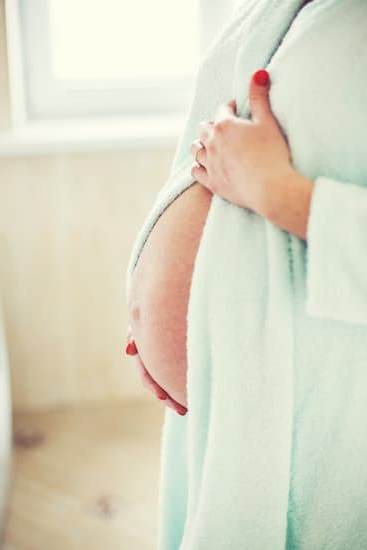What is the recommended nutritional guidelines during pregnancy? Nutrition plays a crucial role in ensuring a healthy pregnancy for both the mother and the baby. It is essential to understand the specific dietary needs during this significant time to support the development and well-being of both mother and child.
In this article, we will explore the key nutrients essential for a healthy pregnancy, foods to eat and avoid, meal planning tips, the importance of hydration, common nutritional concerns, and the role of supplements. Additionally, we will emphasize the significance of seeking professional guidance from a healthcare provider for personalized nutritional recommendations during pregnancy.
During pregnancy, it is important for women to consume a variety of nutrients that support their own health as well as fetal growth and development. This includes vitamins such as folic acid and iron, along with minerals like calcium and zinc. By understanding which foods are rich in these nutrients and how they contribute to a healthy pregnancy, expecting mothers can make informed choices to support their overall well-being.
In addition to discussing specific nutrients, this article will also address common concerns such as food aversions, cravings, and deficiencies that pregnant women may experience. By exploring these factors, expectant mothers can gain valuable insight into managing their nutritional needs throughout their pregnancy journey.
Nutrients Essential for a Healthy Pregnancy
During pregnancy, it is crucial for both the mother and baby to obtain essential nutrients to support healthy development. Some of the key nutrients required during this time include:
Folic Acid
Folic acid plays a vital role in preventing neural tube defects in the developing fetus. It is recommended that pregnant women consume at least 600 micrograms of folic acid daily, either through supplements or foods such as leafy green vegetables, citrus fruits, and fortified grains.
Iron
Iron is important for the production of hemoglobin, which carries oxygen to the body’s cells. Pregnant women need more iron to support the increase in blood volume and to ensure proper development of the baby. Good sources of iron include red meat, poultry, fish, and fortified cereals.
Calcium
Calcium is necessary for bone development in the growing fetus and maintaining bone health in the mother. Dairy products, tofu, almonds, and leafy green vegetables are all excellent sources of calcium.
In addition to these key nutrients, pregnant women should also ensure adequate intake of protein, vitamin D, omega-3 fatty acids, and other essential vitamins and minerals. Meeting these nutritional needs can help support a healthy pregnancy and reduce the risk of complications for both mother and baby.
Foods to Eat During Pregnancy
During pregnancy, it is crucial to focus on consuming a variety of nutrient-dense foods to support the health and development of both the mother and the baby. A well-balanced diet during pregnancy should include a mix of essential nutrients such as protein, calcium, iron, folate, and omega-3 fatty acids. Incorporating a wide range of foods from different food groups can help ensure that these nutritional needs are met.
Protein-rich sources such as lean meats, poultry, fish, eggs, dairy products, legumes, and nuts are important for the growth and development of the baby. These foods also provide essential amino acids that support tissue growth and repair. Additionally, they can help prevent excessive weight gain in the mother and reduce the risk of gestational diabetes.
Fruits and vegetables are rich in vitamins, minerals, fiber, and antioxidants that support overall health during pregnancy. Leafy greens like spinach and kale are excellent sources of folate, which is important for preventing neural tube defects in the developing baby.
Other fruits and vegetables provide vitamin C, potassium, and other essential nutrients that contribute to healthy fetal development. It is also important to include whole grains in the diet as they provide fiber, B vitamins, and minerals such as iron and magnesium.
In addition to these food groups, including healthy fats such as avocados, nuts/seeds (and their oils), and fatty fish like salmon can provide omega-3 fatty acids that support brain development in the baby. By focusing on a varied diet with these key food groups at its core, pregnant women can ensure they are meeting their recommended nutritional guidelines during pregnancy.
Foods to Avoid During Pregnancy
During pregnancy, it is crucial to be mindful of the foods you consume to ensure the health and well-being of both the mother and the baby. Certain foods can pose a higher risk of foodborne illnesses or have negative effects on the development of the fetus. It is important to avoid these foods during pregnancy to minimize any potential harm.
Here is a comprehensive list of foods to avoid during pregnancy:
- Raw or undercooked meat, poultry, and seafood: These items can contain bacteria, parasites, and viruses that can cause foodborne illnesses.
- Unpasteurized dairy products: Unpasteurized milk, cheese, and other dairy products may contain harmful bacteria such as Listeria, which can lead to miscarriage or stillbirth.
- Alcohol: Consuming alcohol during pregnancy can lead to fetal alcohol spectrum disorders (FASDs) and other developmental issues in the baby.
- Caffeine: While moderate consumption of caffeine is generally considered safe, high levels of caffeine have been linked to low birth weight and miscarriage.
In addition to these items, it is also recommended to avoid certain types of fish that are high in mercury, deli meats and hot dogs that may contain Listeria, and raw eggs or products containing raw eggs due to the risk of Salmonella.
Knowing which foods to avoid during pregnancy is just as important as knowing which nutrients are essential for a healthy pregnancy. By being mindful of your diet and making informed choices about what you eat, you can help ensure a safe and healthy environment for both you and your baby. Always consult with your healthcare provider for personalized nutritional advice during your pregnancy.
Meal Planning During Pregnancy
During pregnancy, maintaining a balanced and nutritious diet is crucial for the health of both the mother and the developing baby. It is essential to ensure that pregnant women are consuming adequate amounts of essential nutrients such as folic acid, iron, calcium, and protein. Additionally, staying hydrated is also of utmost importance during this time.
So what is the recommended nutritional guidelines during pregnancy? Pregnant women are advised to follow a well-rounded diet that includes a variety of foods to meet their nutritional needs.
One key aspect of ensuring optimal nutrition during pregnancy is meal planning. By carefully planning meals, pregnant women can make sure they are getting the necessary nutrients from a wide range of food sources. It’s important to include plenty of fruits and vegetables, whole grains, lean proteins, and dairy products in the diet. Meal planning can also help in managing weight gain during pregnancy and preventing nutrient deficiencies.
In addition to focusing on specific food groups, pregnant women should also pay attention to portion sizes and the frequency of their meals. Eating smaller, more frequent meals throughout the day can help manage common issues such as heartburn and indigestion that often occur during pregnancy.
Planning snacks that are nutrient-dense can help meet additional calorie needs while providing essential vitamins and minerals. Overall, following a well-thought-out meal plan can greatly contribute to meeting the recommended nutritional guidelines during pregnancy.
| Essential Nutrient | Benefit |
|---|---|
| Folic Acid | Prevents birth defects in baby’s brain and spine |
| Iron | Supports healthy red blood cell production for both mother and baby |
| Calcium | Aids in bone development for the baby |
| Protein | Supports growth and repair of tissues in the body for both mother and baby |
Importance of Hydration During Pregnancy
During pregnancy, staying well-hydrated is crucial for both the expectant mother and the growing baby. Proper hydration supports the body’s essential functions and helps prevent common issues such as constipation, UTIs, and fatigue. Additionally, adequate hydration can play a role in reducing the risk of preterm labor and maintaining amniotic fluid levels. So, what is the recommended nutritional guidelines during pregnancy related to hydration?
The recommended amount of water intake during pregnancy varies depending on factors such as individual metabolism, activity level, and climate. However, a general guideline is to aim for about 10 cups (2.3 liters) of fluid per day from a combination of water, juice, and other hydrating beverages. It’s important to monitor urine color as an indicator of hydration – pale or light-colored urine typically indicates proper hydration.
In addition to water, expectant mothers can also consume hydrating foods such as fruits (like watermelon and cucumbers), broths, and soups to boost their fluid intake. It’s important to note that caffeine and sugary drinks should be limited as they can contribute to dehydration. Overall, maintaining proper hydration is a simple yet vital aspect of prenatal care that supports the health and wellbeing of both the mother and baby.
| Hydration During Pregnancy | Recommended Intake |
|---|---|
| Water | Aim for about 10 cups (2.3 liters) per day |
| Hydrating foods | Fruits like watermelon and cucumber Soups |
Common Nutritional Concerns During Pregnancy
Pregnancy is a crucial time in a woman’s life, and it is important to pay close attention to nutritional needs during this period. Many women experience food aversions, cravings, and deficiencies during pregnancy, which can impact their overall health as well as the health of their baby. It’s essential to address these common nutritional concerns and find strategies for managing them effectively.
One common issue that many pregnant women face is food aversions. During pregnancy, hormonal changes can cause certain foods to become unappealing or even intolerable. This can make it challenging to consume a balanced diet that provides the necessary nutrients for both the mother and the growing baby. To address food aversions, it may be helpful for pregnant women to explore alternative options for obtaining essential nutrients.
Another common concern during pregnancy is cravings. While some cravings may be harmless, others may result in excessive intake of unhealthy foods. It’s important for expectant mothers to find a balance between satisfying their cravings and making healthy food choices. This can be achieved by incorporating nutrient-dense foods into the diet while still allowing for occasional indulgences in moderation.
In addition to food aversions and cravings, many women experience deficiencies in certain nutrients during pregnancy. Iron, calcium, folate, and vitamin D are especially important during this time. It’s crucial for pregnant women to work with their healthcare providers to identify any potential deficiencies and develop a plan for addressing them through dietary changes or supplements as needed.
- Importance of addressing food aversions
- Strategies for managing cravings
- Identifying and addressing nutrient deficiencies
- The role of healthcare providers in addressing these concerns
Supplements for a Healthy Pregnancy
During pregnancy, it is important to ensure that both the mother and baby are receiving adequate nutrients for optimal health. In addition to consuming a well-balanced diet, many healthcare providers recommend the use of prenatal vitamins and other supplements to support the nutritional needs of expectant mothers. These supplements can help fill any potential gaps in an individual’s diet, ensuring that both mother and baby receive all the necessary nutrients for a healthy pregnancy.
The Role of Prenatal Vitamins
Prenatal vitamins are specially formulated multivitamins designed to meet the increased nutritional needs of pregnant women. These vitamins typically contain higher levels of folic acid, iron, calcium, and other essential nutrients crucial for fetal development. Folic acid is particularly important in preventing neural tube defects in babies, while iron supports the increased blood volume required during pregnancy. Healthcare providers often recommend starting a prenatal vitamin regimen before conception and continuing throughout pregnancy to support maternal health and prevent birth defects.
Other Recommended Supplements
In addition to prenatal vitamins, some expectant mothers may require additional supplements based on their individual needs. For example, women with iron deficiencies may be advised to take separate iron supplements to prevent anemia. Omega-3 fatty acids are also commonly recommended as they support fetal brain development.
Vitamin D is another important nutrient that plays a key role in bone health for both the mother and baby. It is essential for pregnant women who have limited sun exposure or do not consume enough foods rich in vitamin D.
Consultation With a Healthcare Provider
While supplements can play a valuable role in meeting nutritional needs during pregnancy, it is crucial for expectant mothers to consult with their healthcare provider before starting any supplement regimen. Every woman’s nutritional requirements during pregnancy are unique, and professional guidance can help determine the specific supplements necessary for each individual based on their overall health, dietary habits, and medical history.
Incorporating prenatal vitamins and other recommended supplements as part of a comprehensive approach to nutrition during pregnancy can help support maternal health and fetal development. Consultation with a healthcare provider is essential for personalized recommendations regarding which supplements will best meet an individual’s specific nutritional needs during this important time.
Consultation With a Healthcare Provider
In conclusion, it is evident that maintaining a healthy and balanced diet is crucial during pregnancy to ensure the well-being of both the mother and the developing baby. The recommended nutritional guidelines during pregnancy emphasize the importance of consuming essential nutrients such as folic acid, iron, calcium, protein, and other vitamins and minerals.
It is essential for expecting mothers to be mindful of what they eat and to focus on incorporating a variety of nutrient-dense foods into their diet.
While this article has provided an overview of the key nutrients required during pregnancy and offered guidance on meal planning, it is important to acknowledge that every woman’s nutritional needs may vary. This is why consulting with a healthcare provider is crucial for personalized recommendations tailored to an individual’s specific dietary requirements.
Healthcare professionals can offer valuable guidance on managing common nutritional concerns such as food aversions, cravings, and deficiencies, while also addressing any concerns about supplements or specific dietary restrictions.
Ultimately, seeking professional guidance can provide expectant mothers with the assurance that they are meeting their unique nutritional needs throughout their pregnancy journey. By working closely with healthcare providers, women can receive personalized recommendations that take into account their individual health status, lifestyle, and dietary preferences. This collaborative approach ensures that both mother and baby receive the necessary nutrients for a healthy pregnancy and sets the foundation for a positive start to motherhood.
Frequently Asked Questions
What Are the Nutritional Requirements During Pregnancy?
During pregnancy, a woman’s nutritional requirements increase to support the growth and development of the fetus. This includes an increased need for protein, iron, calcium, folic acid, and other essential nutrients to ensure the health of both the mother and baby.
What Are the Five Important Nutritional Requirements for the Pregnant Mother?
The five important nutritional requirements for a pregnant mother include: 1) folic acid to prevent birth defects; 2) iron to prevent anemia and support fetal growth; 3) calcium to support bone development in the fetus; 4) protein for tissue growth and repair; and 5) essential fatty acids for brain development in the baby.
What Nutritional Advice Is Recommended for a Healthy Pregnancy or Lactation?
Nutritional advice recommended for a healthy pregnancy or lactation includes consuming a well-balanced diet rich in fruits, vegetables, whole grains, lean proteins, and healthy fats. It is also important to stay hydrated by drinking plenty of water and to avoid alcohol, caffeine, raw meat/seafood, unpasteurized dairy products, and high-mercury fish.
Additionally, taking prenatal vitamins as recommended by a healthcare provider can help ensure that all nutritional needs are met during pregnancy or lactation.

Welcome to my fertility blog. This is a space where I will be sharing my experiences as I navigate through the world of fertility treatments, as well as provide information and resources about fertility and pregnancy.





